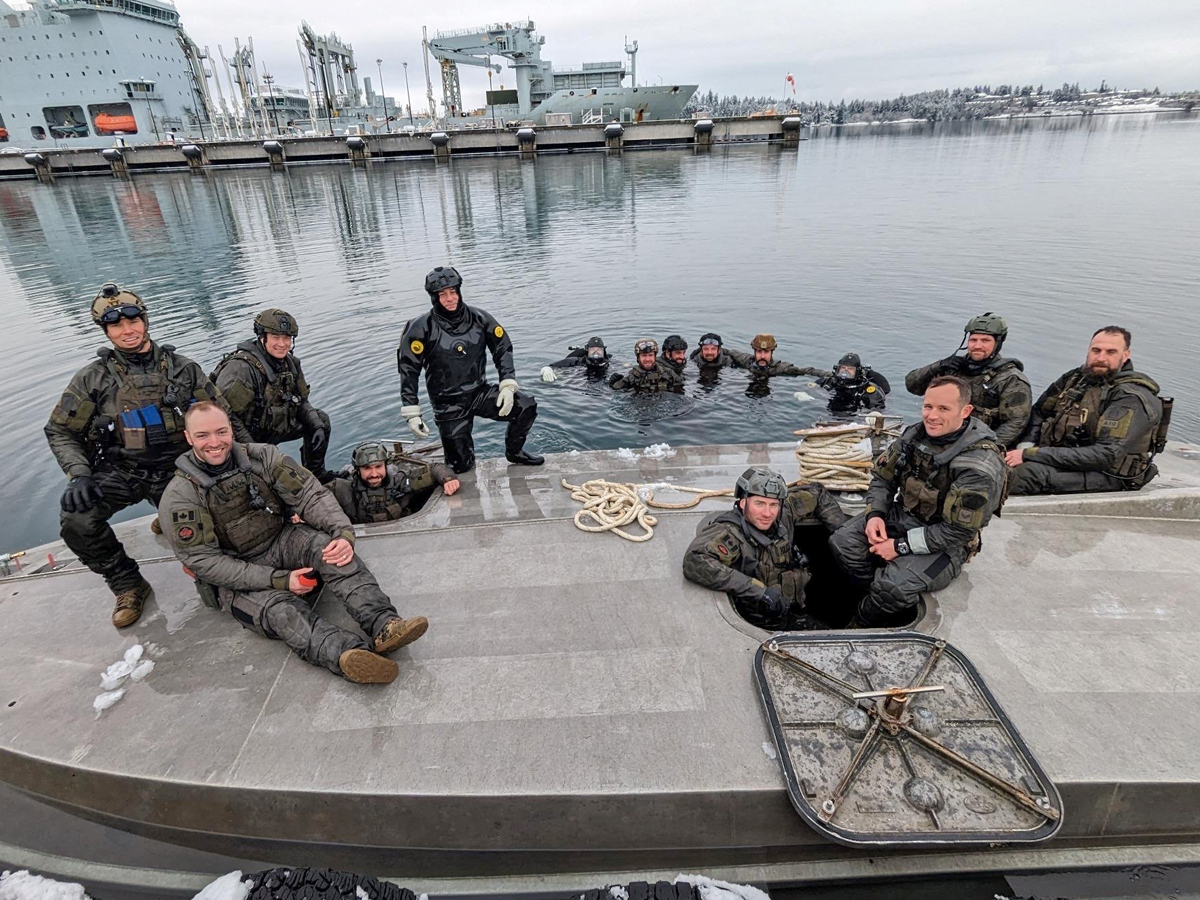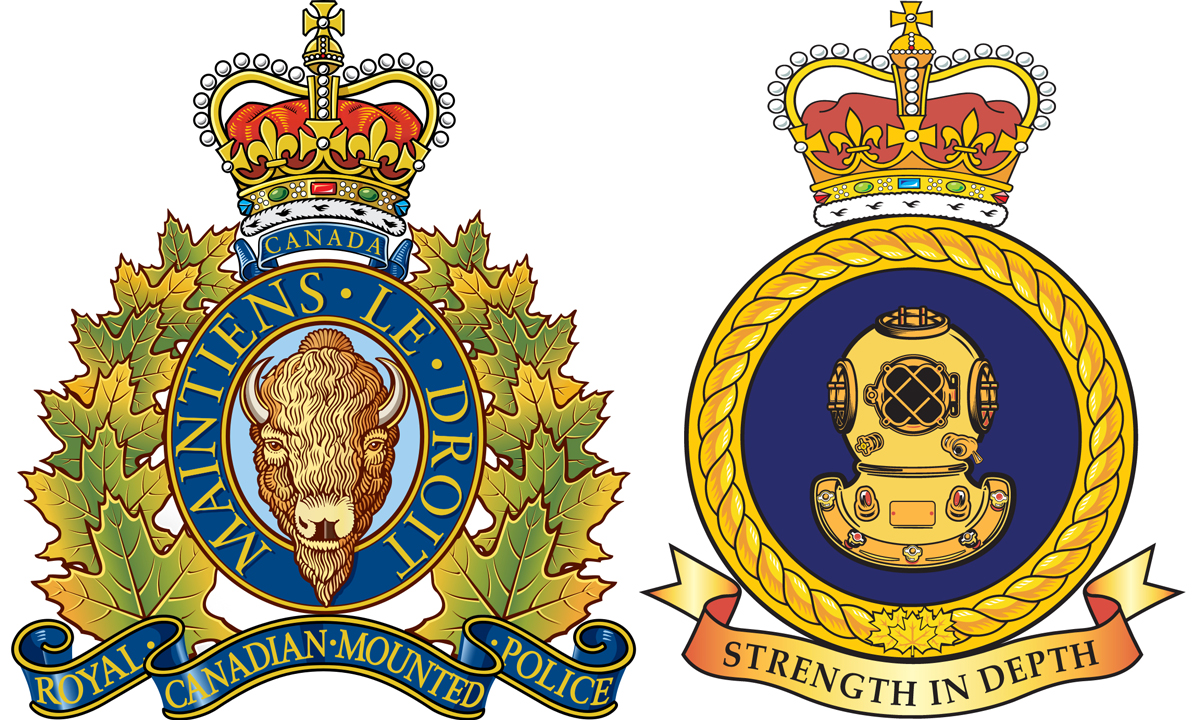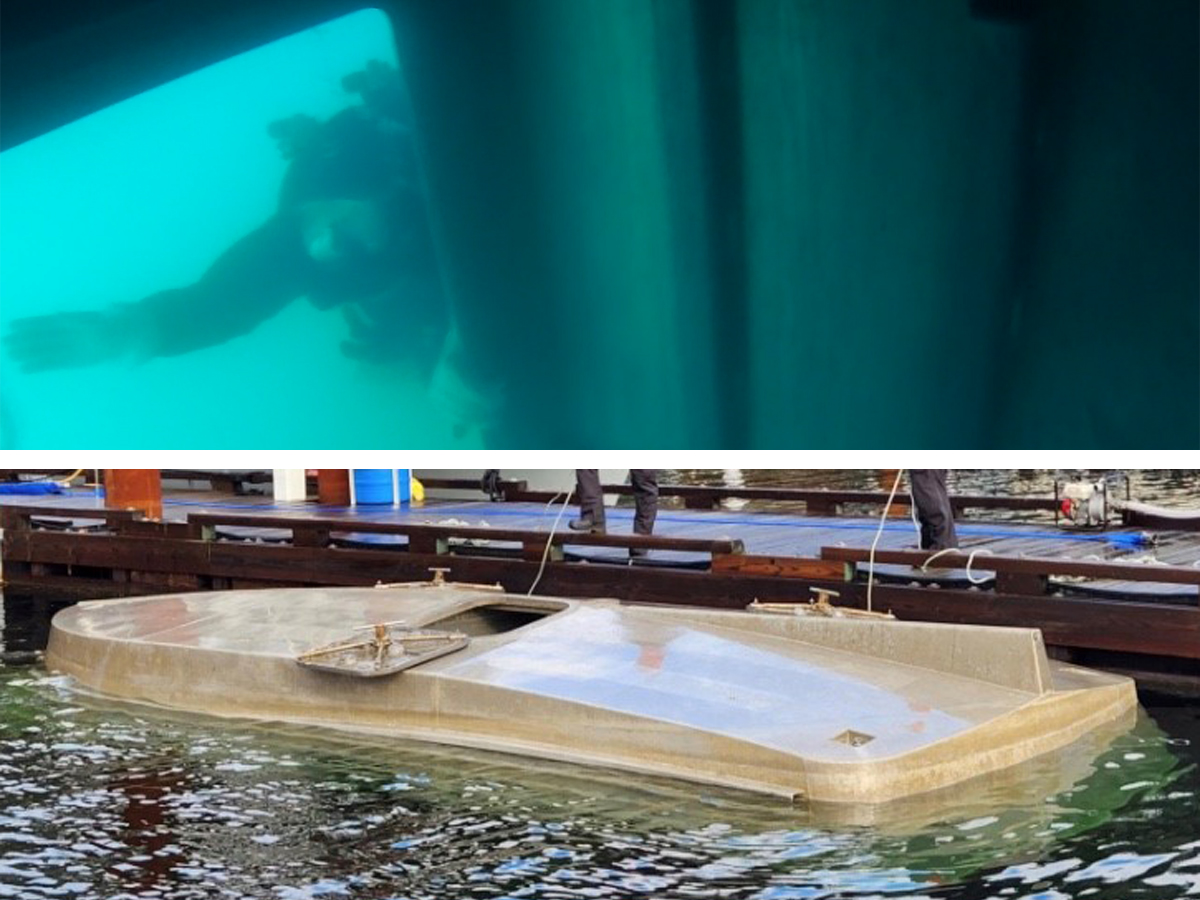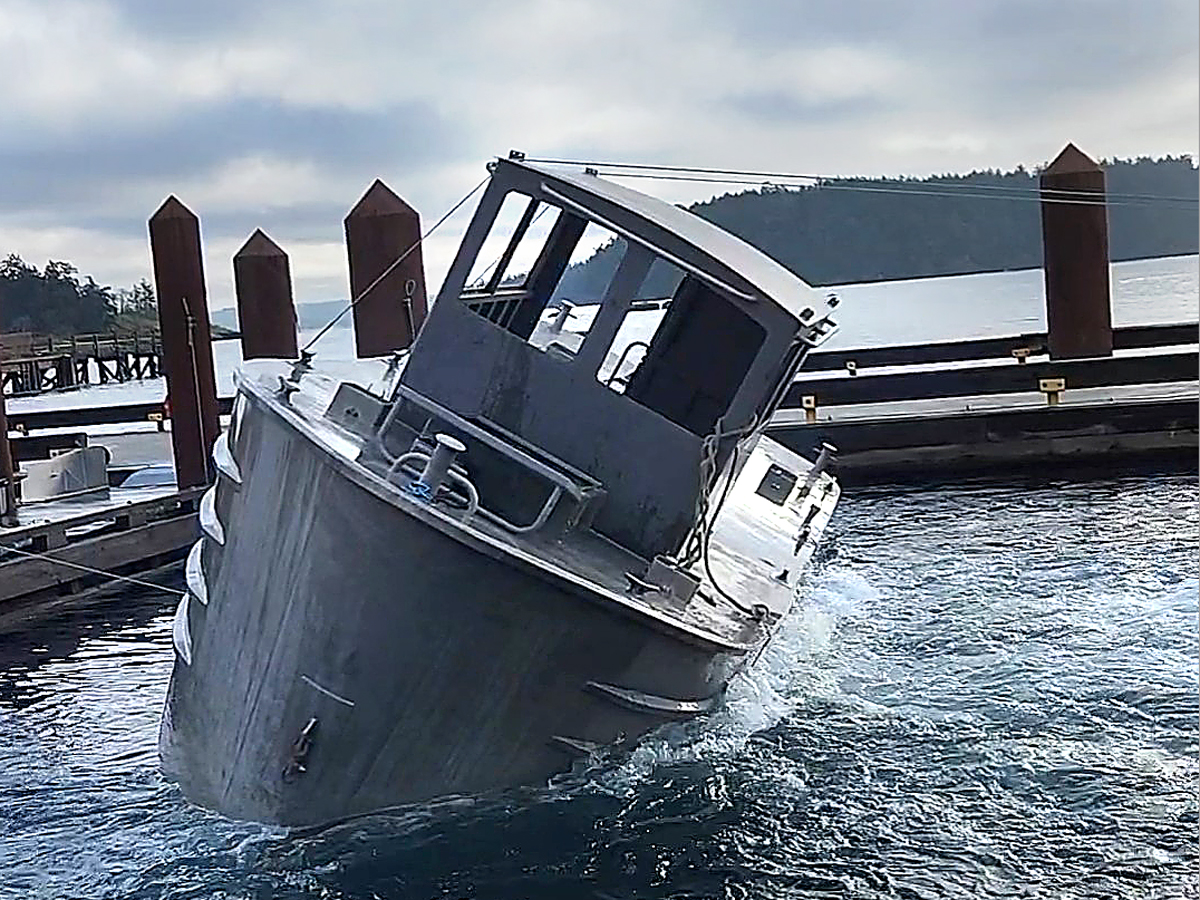RCMP complete capsized vessel training
By Lookout Production on Feb 21, 2024 with Comments 0

RCMP Marine Tactical Operations Instructors gather for a group picture on ‘D’ Jetty during a training exercise involving a capsized boat, Jan. 17.
Peter Mallett,
Staff Writer
—
Nothing sounds as refreshing as spending the only snowy day on Vancouver Island trapped inside a capsized boat in the cold waters of Esquimalt Harbour.
Luckily for a team of 20 Royal Canadian Mounted Police (RCMP) members, the situation was not a real-life emergency but part of training scenario. The Marine Tactical Operations instructors from across Canada gathered on Jan. 17 at Fleet Diving Unit (Pacific) in the waters of ‘D’ Jetty for a capsized vessel training.
Corporal (Cpl) Andrew Michaud of the RCMP’s National Tactical Training Section Emergency Response Team located in Ottawa, said the training will help develop the RCMP Tactical Operations Course planned for early 2025.

“The training was conducted to ensure our procedures offered a safe progression for candidates to become confident in the water and can escape an overturned vessel if trapped inside,” said Cpl Michaud.
The scenario saw five operators plus an instructor in the boat at a time plus two divers outside the boat.
The groups trained in a specially designed flipped and submerged training vessel at two to eight meters in depth that would quickly fill with water. The teams climb through a hatch, which is then shut, trapping the team. They must escape the boat by crawling and swimming through an open exit.
The RCMP training vessel was built with several airtight compartments that allow it to float upside down and adjust the air pocket inside, explained Sergeant Jay White of the RCMP’s National Underwater Training Recovery Centre, based in Nanaimo. Lines that run between a nearby Rigid Hull Inflatable Boat (RHIB) and the jetty help adjust the boat into a capsized or upright position, with pumps removing the water from the cabin. Locked inside the overturned boat’s cabin, the instructors wore an Emergency Response Team Marine Kit, including a dry suit, belt, vest, helmet, and Survival Egress Air bottle.
As part of their training, the participants progress through three different exits. The route of their escape was determined by the depth of the submerged boat, the size of the air pocket and how much water was inside the cabin. The training, Cpl Michaud said, went very well.
“We discussed and tried new things such as which hatches to use first and how much water to let in the overturned vessel,” Cpl Michaud said. “We completed a safe yet challenging progression.”
For the past several years, the national police service of Canada has held marine operator training courses at CFB Esquimalt or nearby. Cpl Michaud says the Fleet Diving Unit and the Base have helped find suitable training locations and assisted with any necessary support.
“We are very fortunate to have their support, and have enjoyed working with the Department of National Defence because of the professional relationship we have and the willingness of everyone on their team to go that extra mile to make our training possible,” said Cpl Michaud.


Wheel House, Diver Assisting Direction – RCMP Marine Tactical Operations Instructors participate in a training exercise involving a capsized boat off ‘D’ Jetty at CFB Esquimalt, Jan. 17. The specially-designed training vessel they were using is built with several airtight compartments that allows it to float upside down and adjust the air pocket inside. Photo: RCMP
Filed Under: News Release • Top Stories
About the Author:





